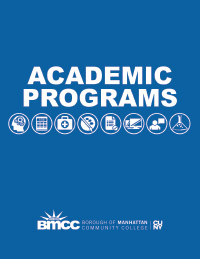1. How do I apply?
All you have to do is apply to the college and choose the Health Information Technology (HIT) Program as your area of study. If you do not have a degree, apply as a freshman. If you have a degree, apply as a transfer student. If you have taken college credits, have an official transcript sent to the college so the courses may be evaluated as possible transfer credits.
2. When does the program begin?
The freshman HIT sequence begins each September.
3. Are there any special requirements I need to fulfill before applying to the program?
Before you can take HIT courses, you must complete all remedial courses. It is possible that the college will test you on reading, writing, and math skills. Your advisement information in CUNYfirst will state whether you need to take remedial courses or are exempt.
4. How long will it take to complete the program?
That depends on you and your schedule. Students who take all of the courses in the suggested sequence can complete the program within two years. However, if you drop out of or fail a course, it may put you back a semester. If you fail a HIT course, you will be unable to repeat the course for 1 year. You cannot take HIT courses but you can take electives.
See course sequence
5. What happens if I fail a course?
If you fail a HIT course, you can take it one more time. However, if you fail the second time you are no longer in the program. Again, when you fail a HIT course, you will be out of the program for a year because the HIT sequence is only offered once a year.
See grading policies
6. Is the program accredited?
Yes, the program is accredited by the Commission on Accreditation for Health Informatics and Information Management Education (CAHIIM).
7. What type of resources does the program offer?
The program has it’s own computer lab with specialized software programs geared toward the health information management (HIM) profession. Students will complete the same tasks as professionals in the field.
Many of learning resources and programs are internet based and accessible to students 24 hours.
8. Are there HIT courses offered on the weekends or evenings?
No, HIT courses are only offered during the day due to clinical requirements. HIM/Medical Record departments are open 24 hours but directors and management generally work during the day. Hospitals will not allow students to complete their clinicals in the evening when supervision is limited.
9. I have been working in the HIM field (Medical Records) for many years, can I receive college credit for my work experience?
At this point the college is not waiving any of the clinical requirements for students who work in the field. Generally, the student is exposed to a different environment than their current employment.
10. I was enrolled in the program over 2 years ago but had to stop attending, how can I finish my degree?
Depending on the course work you completed, you may be able to pick up where you left off. The profession constantly changes and the program changes with it.
11. What happens when I graduate?
Upon fulfilling the requirements of the program and college, you have earned an Associate Degree in Applied Science and are eligible to sit for the Registered Health Information Technician exam. The exam is offered through AHIMA and there is a fee. You are responsible for paying this fee.
12. Will I have patient contact?
Generally, students remain in the HIM department. However, it is possible for students to visit a floor where there are patients. The college has immunization and health requirements for its students just as the hospital does for its workers. If a student finds themselves in a situation where they feel their health is being compromised, it should be brought to the program and HIM department director’s attention. For the most past, HIM professionals in a medical facility that provides patient care do not deal with patients. This may not be true for professionals who work in a doctor’s office.

 Comprehensive Academic Brochure
Comprehensive Academic Brochure